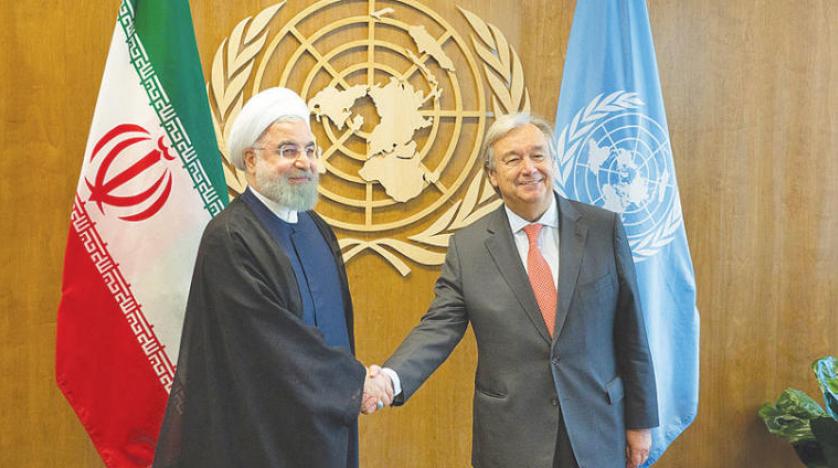New York – The fate of the nuclear agreement with Iran is dominating this week’s United Nations General Assembly as European officials will attempt to persuade US President Donald Trump to maintain the agreement.
Trump is to meet a number of leaders who have opposing stances on the deal, including Israeli Prime Minister Benjamin Netanyahu, who backs annulling it, and French President Emmanuel Macron, who backs keeps it.
The US president pledged during his electoral campaign to abolish the Vienna agreement signed on July 14, 2015 between Tehran and six world powers (US, UK, France, China, Russia and Germany).
During Monday’s meeting between Iran’s President Hassan Rouhani and UN Secretary General Antonio Guterres, the former highlighted the importance of fully implementing the agreement by all participants.
Washington and Tehran are exchanging accusations of violating the agreement, which was negotiated for ten years and came to effect in January 2016 to ensure the peaceful nature of the Iranian nuclear program in return for the gradual lift of international sanctions on Iran.
Talks at the UN General Assembly coincide with Trump’s speech before US Congress in mid-October to affirm whether Tehran is abiding by its commitments. Should he say that it was violating its pledges, then sanctions would be in order.
“It’s essential to maintain the agreement,” said French Foreign Minister Jean-Yves Le Drian in New York, adding that France will try to persuade Trump that this is the right option.
Washington accuses Iran of breaking the spirit of the agreement and reinforcing its leverage that does not serve the region’s stability, especially in Yemen, Syria and Lebanon.
In this context, Nikki Haley, US ambassador to the UN, said in early September that Iran was using the deal to “hold the world hostage.”
